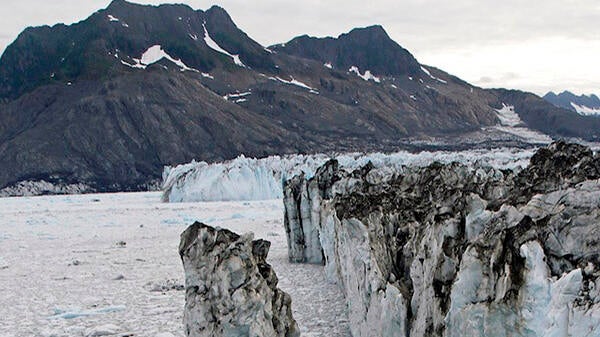During the last glacial period much of the Northern Hemisphere was blanketed by one or more sheets of ice. Throughout this period, chunks of these continental ice sheets often broke off and surged into the North Atlantic, carrying with them large amounts debris and freshwater. These events, called Heinrich events, are often thought to have been responsible for changes in ocean circulation patterns; specifically, weakening the Atlantic Meridional Overturning Circulation (AMOC), a system of currents that transports water and heat from the Southern to the Northern Hemisphere in the Atlantic basin.
The Next Generation of Scientists Begin Work at BIOS
June 28, 2019
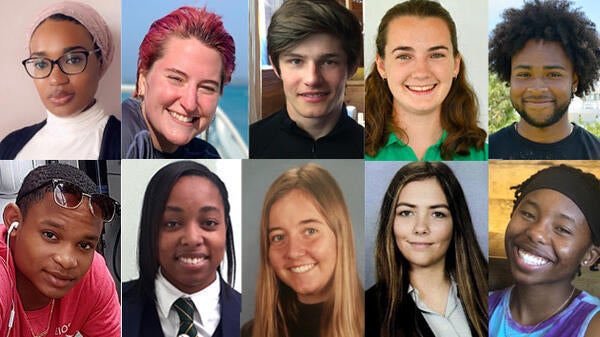
Each year a handful of Bermudian students are selected to participate in the BIOS Bermuda Program. This program, which began in 1976, offers students aged 18 and older the opportunity to broaden their knowledge of marine and atmospheric sciences by working on a specific project of interest alongside BIOS scientists in both field and laboratory settings.
When is a Jellyfish Not a Jellyfish?
June 28, 2019
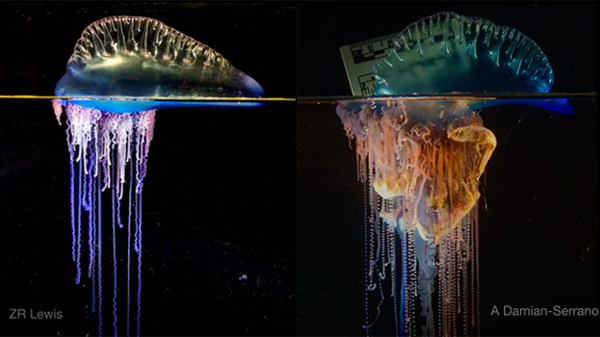
A team of scientists from Yale University traveled to BIOS in May to study the Portuguese man o’ war, a frequent visitor to the waters around Bermuda during spring and early summer.
Building a STEM Pipeline for Bermuda’s Students
June 28, 2019

Both BIOS and Bermuda College are known for providing outstanding educational opportunities in science, technology, engineering and mathematics (STEM) subjects for the island’s young people. While the Bermuda College is a degree-granting institution and BIOS is a not-for-profit research and education facility that focuses on training local students in primary, middle, and high school, both organizations have a similar goal: to provide the island’s children and young adults with the knowledge, skills, and experiences required for future success in academics and the workforce.
A Powerhouse in the Lab and at Sea
June 28, 2019
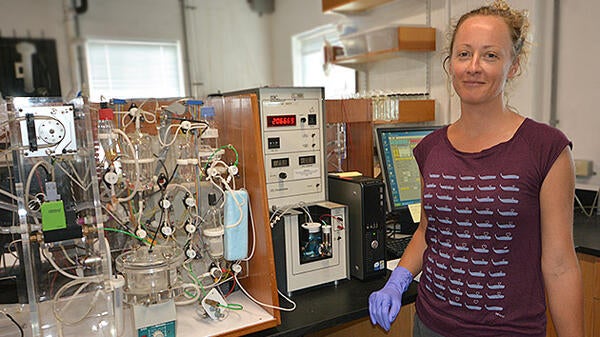
About every 18 months since 2010, Becky Garley, 34, has packed a bag for 5 to 7 weeks of shipboard living in the Arctic or Southern Ocean. As a research specialist at BIOS she works with faculty member and marine chemist Nick Bates to collect and analyze water samples for their work on the ocean carbon cycle. They look specifically at dissolved inorganic carbon and total alkalinity (important to measure the ocean’s ability to neutralize acidic pollution). Their work informs broader, global research into the ocean carbon system and the effects of climate change on the ocean.
A Joint Effort on the High Seas
June 28, 2019
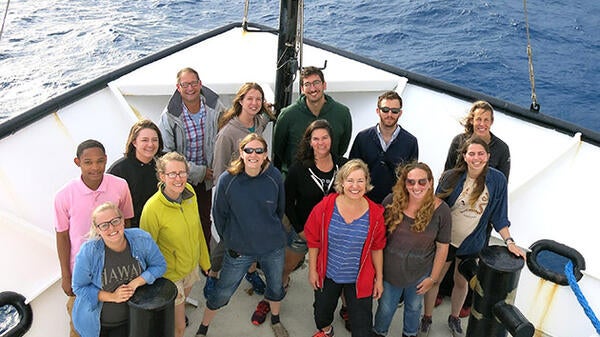
Late last month, a four-day research cruise on the Sargasso Sea gave two local educators and a senior school student the opportunity to gain unique insight into what it means to live and breathe science aboard a working research vessel. The cruise was part of a project funded by the National Science Foundation (NSF) investigating the daily migrations of small marine zooplankton called copepods.
How Do We Understand the Ocean?
July 25, 2019
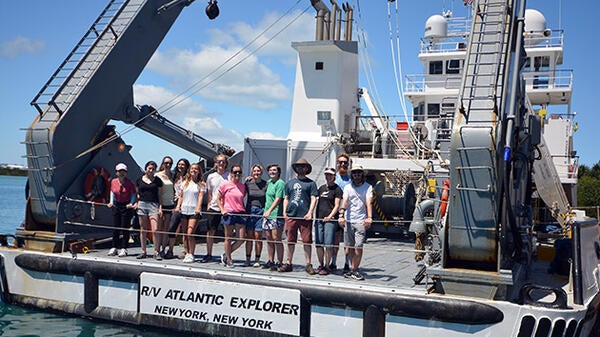
This summer marks the third year that BIOS has offered its Modern Observational Oceanography (MOO) course to undergraduate and postgraduate students enrolled in oceanography programs. The course aims to provide students with a broad introduction to, and practical experience in, the field of observational oceanography—a rapidly developing area of study that focuses on using a variety of technologies and methods to further our understanding of how the physical state of the ocean is changing.
Finding Success Close to Home
July 25, 2019
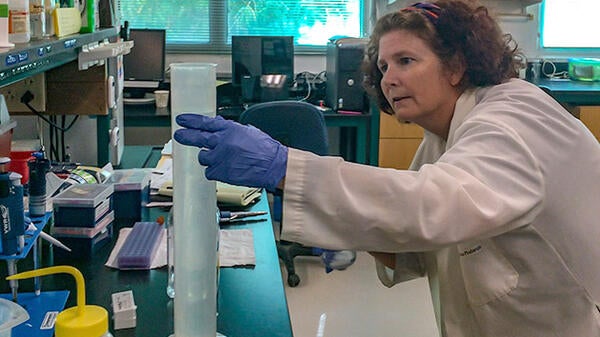
For more than 40 years, the BIOS Bermuda Program has offered Bermudian students ages 18 and older the opportunity to work alongside scientists on research projects in the ocean and atmospheric sciences. During the summer, for periods of four or eight weeks, Bermuda Program interns work full time in both laboratory and field settings, gaining significant hands-on experience that often translates into advanced degrees in science, technology, engineering, and mathematics (STEM) subjects. For some students, however, their internship leads them to employment at BIOS, often as research technicians or teaching assistants.
Educating the Educators
July 25, 2019
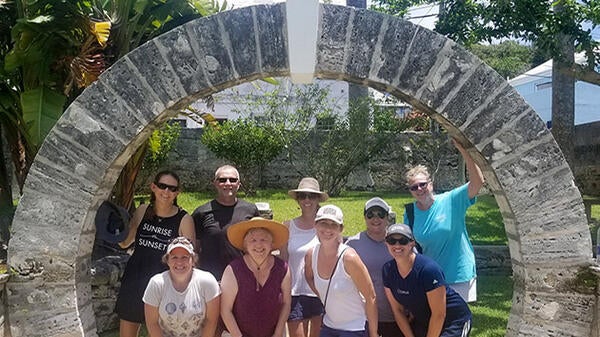
Having brought students to BIOS for more than 40 years, Ed Argenta—a teacher consultant with the Connecticut Geographic Alliance—was already familiar with what the Institute had to offer in terms of hands-on learning experiences. However, in 2012, a conversation with BIOS education staff, including Kaitlin Noyes, director of BIOS’s Ocean Academy, led to the idea of developing a summer course for educators.
Looking Out for the Little Guys
July 25, 2019
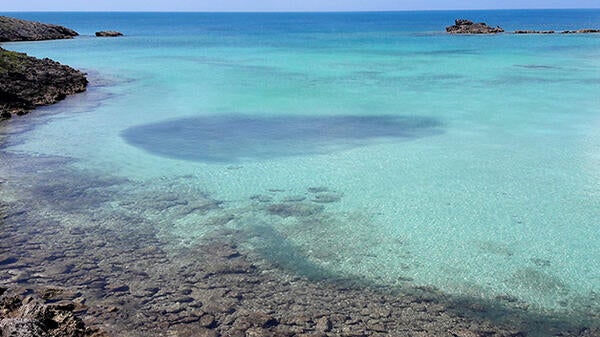
Small fishes play an important role in the marine food chain, providing food for larger fishes and water birds, but they are also caught for use as bait in both commercial and recreational fisheries. Over the past thirty years, a decline has been noted in some species of baitfish, leading scientists and resource managers to look more closely at the population dynamics of these important fish. However, baitfish tend to congregate in large schools containing multiple species, making it difficult to study individual populations.
